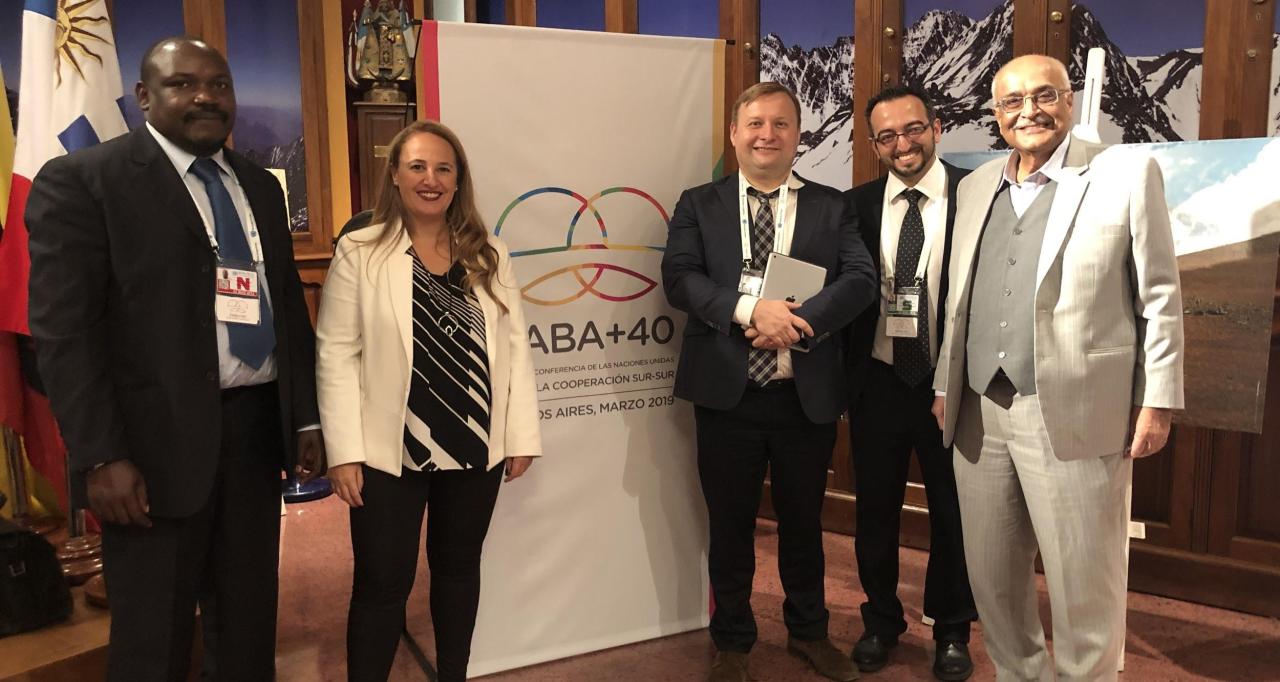Side event BAPA+40 Date: 20 March 2019 Time: 5:30 PM - 7:30 PM Venue: Instituto Nacional Sanmartiniano, Salón Principal (main…
Southern Voice, the United Nations Development Programme, and CIPPEC co-hosted a panel discussion on assessing the effectiveness of South-South Cooperation (SSC) at the country level within the framework of the Second High-level United Nations Conference on South-South Cooperation (BAPA+40).
The three organisations brought together panellists who discussed the experiences and priorities of relatively small SSC recipient countries. At Southern Voice we consider these views to be critical for improving development impact and ensuring that cooperation maintains the principles of horizontality and mutual benefit. How can the effectiveness of SSC be improved?
Placing SSC within a changing global financial landscape
As SSC has evolved, so have other sources of finance. For example, blended finance keeps gaining momentum among traditional donors. Furthermore, other providers, like private philanthropies and the private sector are taking over a greater proportion of the donor landscape. While Overseas Development Assistance shrinks, SSC gains greater prominence. In some countries, non-traditional sources, such as philanthropic capital, have become the greatest sources of financing for development. In countries like Malawi, these new financial flows play a crucial role in the implementation of the Sustainable Development Goals (SDGs). Furthermore, many countries are graduating to middle-income status. In this context, countries that were traditionally only on the recipient end, are now active in the cooperation field, particularly in technical assistance.
Clarifying the definition of SSC to improve its transparency and accountability
Lack of a common definition of what SSC entails is detrimental. This grey area does not only affect accountability and transparency but also makes it difficult to quantify contributions of SSC towards the achievement of the SDGs.
There are three aspects of SSC that need more clarity: the inputs (the type of cooperation provided), the process (how cooperation is carried out) and the outcomes (the results from the cooperation). Especially the first two require further discussion among Southern providers and recipients. In terms of its impact, SSC should also align itself with the 2030 Agenda goals and targets.
A clear definition of SSC fosters accountability. It does so by specifying what information from providers and recipients should be disclosed and reported. However, in order to achieve greater accountability, providers and recipients need to strengthen their statistical information systems. A lack of data hinders recipient countries ability to plan for development strategies and renders invisible the contributions of SSC to the achievement of the 2030 Agenda.
Recipients perspectives are critical to the effectiveness of SSC
The experience of the Ibero-American SSC system shows that technical and political consensus is important to promote and mainstream SSC. A discussion to clarify the concept of SSC needs to bring together both recipient and providers of SSC. Recipient countries can play an important role in leading the discussion of how SSC can be more effective. They can showcase how better, up-to-date, relevant information supports national planning and the alignment of SSC to national plans. Recipient countries can also foster the coordination spaces that allow recipient and providers to find concrete opportunities for cooperation. Furthermore, recipient countries can shed light on the implication of issues such as the debt increase and the use of conditionality.
Outcome
How to best measure development effectiveness on SSC has to be addressed on a continuous basis. The panel organized by Southern Voice, the United Nations Development Programme and CIPPEC provided participants with excellent insight about the challenges this task entails and critical issues to be considered in order to achieve better coordination and a consensus on SSC.


